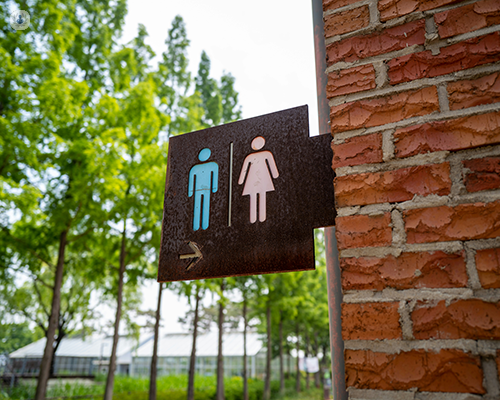Unlocking relief: navigating lower urinary tract issues in men with effective solutions
Autore:Lower urinary tract symptoms (LUTS) are common among men, especially as they age. These symptoms can significantly impact quality of life, but understanding their causes and available treatments can help manage the condition effectively.
In this article, Mr Sachin Agrawal, renowned consultant urological surgeon, will explore common questions regarding LUTS, their causes, and solutions.
What are lower urinary tract symptoms (LUTS)?
Lower urinary tract symptoms refer to a group of symptoms that affect the bladder and urethra. These symptoms are typically divided into two categories:
- Storage symptoms: these include frequent urination, urgency to urinate, and nocturia (waking up at night to urinate).
- Voiding symptoms: these include difficulty starting urination, weak urine flow, or feeling like the bladder hasn’t fully emptied.
These symptoms can occur individually or in combination, and may vary in severity.
What are the common causes of LUTS in men?
There are several potential causes of LUTS, many of which are related to the prostate gland or bladder function. Common causes include:
- Benign prostatic hyperplasia (BPH): The enlargement of the prostate is a common cause of LUTS in older men. As the prostate grows, it can obstruct the flow of urine, leading to difficulty in voiding.
- Prostatitis: inflammation of the prostate can also result in LUTS. Prostatitis can be caused by infection or chronic inflammation and may present with pain in addition to urinary symptoms.
- Overactive bladder (OAB): this condition involves involuntary bladder contractions, leading to urgency, frequency, and nocturia, even if the bladder isn’t full.
- Urethral stricture: a narrowing of the urethra due to scarring can obstruct urine flow, causing voiding symptoms.
- Bladder dysfunction: in some cases, the bladder muscles weaken or become overactive, leading to issues with storage or emptying.

When should I seek medical help for LUTS?
While occasional urinary symptoms can be normal, persistent or worsening LUTS should be evaluated by a healthcare professional. Seek medical attention if:
- You experience difficulty in starting or stopping urination.
- Your urine flow is consistently weak.
- You need to urinate frequently, especially at night.
- You experience pain or discomfort when urinating.
- There is blood in your urine.
These symptoms could indicate an underlying condition that requires treatment, such as BPH or an infection.
What treatments are available for LUTS?
The treatment for LUTS will depend on the underlying cause and the severity of symptoms. Common treatment options include:
- Lifestyle changes: For mild symptoms, lifestyle modifications such as reducing fluid intake before bed, avoiding caffeine and alcohol, and regular physical activity can help improve urinary symptoms.
- Medications: Alpha-blockers (which relax the muscles of the prostate and bladder neck) and 5-alpha reductase inhibitors (which shrink the prostate) are often prescribed for men with BPH. Anticholinergics may be used for overactive bladder symptoms.
- Minimally invasive procedures: For men with moderate to severe BPH, procedures like transurethral resection of the prostate (TURP) or laser therapy can relieve obstruction and improve urinary flow.
- Surgery: In more advanced cases of BPH or if medication is ineffective, surgical intervention may be necessary to remove part of the prostate.
Can LUTS be prevented?
While LUTS may not be completely preventable, there are steps that men can take to reduce their risk or manage mild symptoms:
- Maintain a healthy weight.
- Stay physically active.
- Limit intake of diuretics such as caffeine and alcohol.
- Perform pelvic floor exercises to strengthen the muscles that control urination.
Conclusion
Lower urinary tract symptoms can significantly affect a man's quality of life, but effective treatments are available. If you experience persistent urinary symptoms, consult with a healthcare professional to identify the cause and explore appropriate treatment options. Early diagnosis and intervention can help manage symptoms and improve overall well-being.
Are you thinking about getting a diagnosis for haematuria? Arrange a consultation with Mr Sachin Agrawal via his Top Doctors profile.


